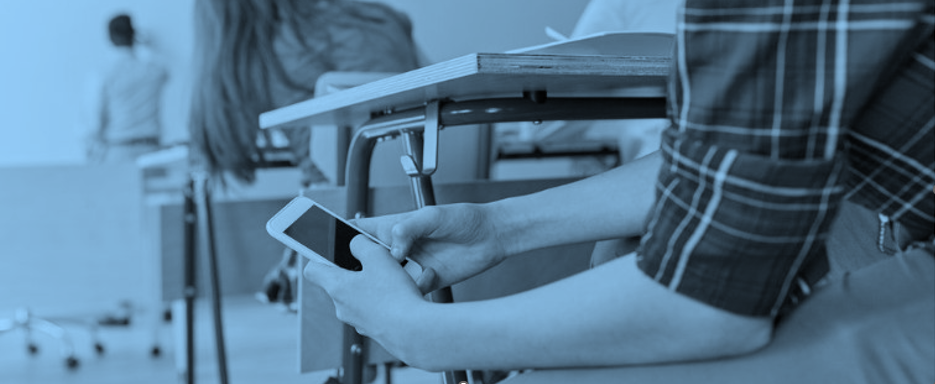According to research, the human brain cannot focus on two things at once. All thinking about students and cell phones needs to be driven by that fact. The word “distraction” hardly describes our phones’ power to suck quality attention.
Yes, we do the dishes, listen to music, and keep an eye on the clock at the same time, aka “multitasking.” Those tasks don’t need the devoted attention required by, for example, reading a book, doing taxes, or learning to drive. (Well, learning to do anything.)
All schools have been struggling with restricting phone use. Most principals and teachers support some version of a ban since, on top of everything, now they’re policing phones all day. However, staff don’t want to be victims of the outrage a ban might incite.
In 2018, the French government banned phones from schools nationally. Boom; done. End of controversy. End of attendant problems.
Parents, the strongest opponents to bans, object for two reasons.
First, they buy the myth that phones enhance safety. Quite the opposite.
Ken Trump, president of National School Safety and Security Offices, warns that students focused on their phones in an emergency can’t “pay 100% attention to the directions of the adults and follow steps that could save their life.” And “If we’re relying on the kids to make the 911 calls, we have a bigger problem that goes beyond cellphone issues.”
When students call in bomb threats or summon police as an overreaction or a prank, evacuating the building might be necessary. In-school calls make it impossible to figure out who made the call or from where.
Teachers have phones for emergencies.
Second, parents want 24/7 access to their kids. Granted, families need to manage transportation, after-school activities, and changes in plans. But not during the school day. If mid-day issues come up, the front office has phones.
Even concert venues have gotten so sick of phone disruptions, they, and increasingly schools as well, use pouches where phones can be parked out of reach or locked until the venue or school unlocks them. That’s a one-time purchase.
And then there’s the news screaming daily about social-media ugliness, cyberbullying, sexting, cheating. and isolation. A partial solution to our mental and social health crisis is to return kids to face-to-face interaction with other humans, young and older, during lunch, breaks, homeroom, and advisory. Phones can wreck social health.
Most importantly, academics suffer significantly. Which Rhode Island cannot afford.
A brief from the University of Southern California reports that a study by the University of London found that “participants who multitasked during cognitive tasks experienced an IQ score decline similar to those who have stayed up all night.”
A study using fMRI scans of the brain showed that when participants do two tasks at once, “the brain splits in half and causes us to forget details and make three times more mistakes when given two simultaneous goals.”
The London School of Economics found that when phones were banned, test scores improved by 6.41% of a standard deviation and students in the lowest quartile of prior achievement improved by 14.23%.
Okay, back to France. Already beleaguered schools cannot take on the inevitable pushback. The state or district administration must be the ones to fight for the common good. They could easily argue that a ban would enhance educational equity for those kids who most suffer from distractions and those without smartphones. Schools have computers; no one needs a phone for tech reasons.
And putting cell phones off limits would hardly cost a thing.
Be bold. Ban the darn things.
This article was first published in the Providence Journal, March 5, 2023.
Public comments posted on this site are much appreciated. However, if you prefer: juliasteiny@gmail.com

Sounds like a no brainer, Jules!
Frank